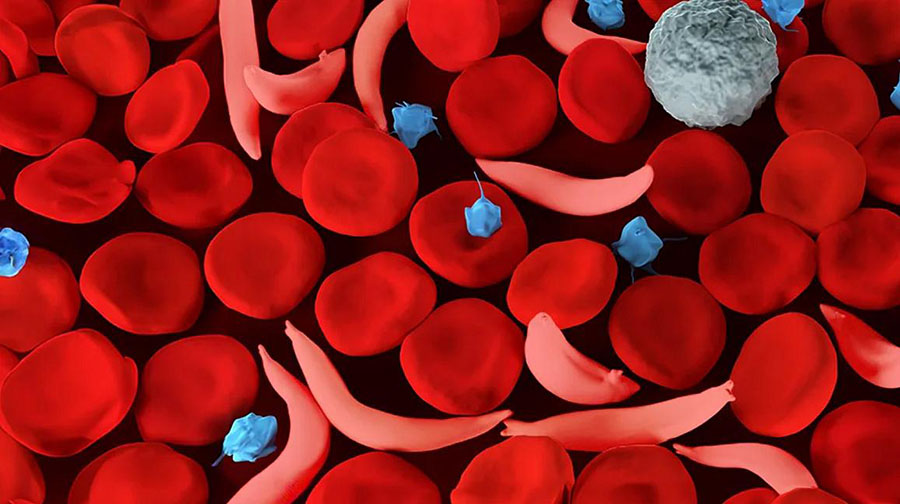Genetic carriers for sickle cell disease have higher risks of blood clots across diverse ancestries
Study finds that sickle cell trait is prevalent among diverse human populations
National Institutes of Health (NIH) researchers and collaborators have found that being a carrier for sickle cell disease, known as having sickle cell trait, increases the risk of blood clots, a risk that is the same among diverse human populations that may not traditionally be associated with sickle cell disease. The study provides estimated clinical risks for people with sickle cell trait, which can inform clinical practice guidelines. Researchers examined the largest and most diverse set of people with sickle cell trait to date, which includes data from over 19,000 people of various ancestral backgrounds with sickle cell trait.
The study, published in Blood Advances, was led by researchers at the National Human Genome Research Institute (NHGRI), part of NIH, The Johns Hopkins University School of Medicine, Baltimore, and the company 23andMe, South San Francisco, California.
Previous research investigating the relationship between sickle cell trait and blood clots have only included individuals of African genetic ancestry and self-identified Black participants because of the incorrect assumption that the genetic carrier state only affects those who identify as Black or African American. While sickle cell trait in the United States is most prevalent in individuals who self-identify as Black or African American, individuals from all ancestral backgrounds may have sickle cell trait. Sickle cell trait is often found in individuals living in or from West and Central Africa, Mediterranean Europe, India and the Middle East.
“Because sickle cell trait is often associated with people who identify as Black or African American, it is not widely studied in other populations, a bias that has led to unintended harm for those with sickle cell trait,” says Vence Bonham Jr., J.D., who co-led the study and serves as acting deputy director and associate investigator at NHGRI. “In particular, the racialization of sickle cell trait has resulted in biased estimations of health risks. The results of our study will help clinicians properly contextualize the risk of blood clots amongst people with sickle cell trait without unintended bias.”
This page was last updated on Thursday, September 12, 2024
